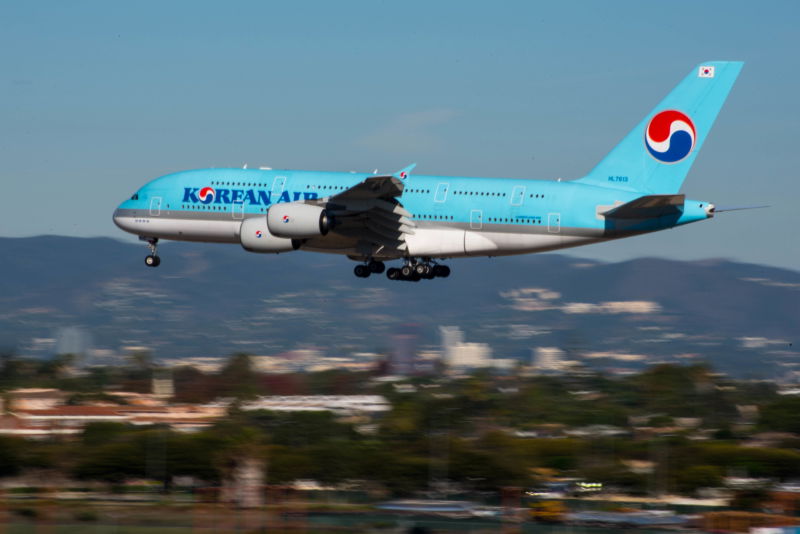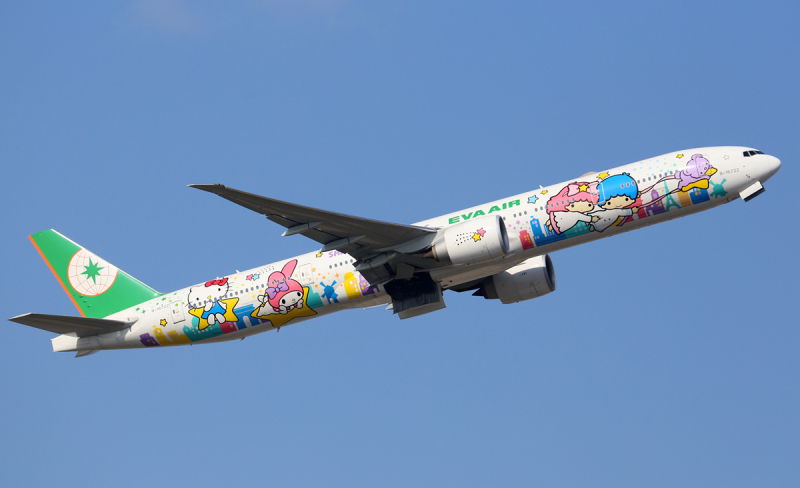Multiple Asian Airlines Ban Power Bank Usage Mid-flight

Featured image: Glenn Beltz/Flickr | CC BY 2.0 Generic
Lithium-based rechargeable batteries have become a staple product, powering our mobile phones, tablets, EV cars, solar-powered homes and so much more.
Unfortunately, damage incurred through improper usage can cause thermal runaway, which involves an uncontrollable increase in temperature, resulting in the battery releasing intense heat, smoke and/or fire.
A number of Asian carriers have seen a rise in thermal runaway incidents, with the most recent involving an Air Busan Airbus A321. On January 28, 2025, Air Busan flight 391 was preparing for departure at Busan’s Gimhae International Airport, when a fire broke out in the rear of the aircraft, resulting in plane being damaged well beyond repair.
Even though investigators have not determined the true cause of the fire, it was reported that the source of the smoke and fire originated from one of the overhead bins, leading officials to believe that a portable power bank may have been the culprit.
Since then, a number of Asian airlines have implemented policies banning the usage of power banks mid-flight. Passengers will still be able to travel with them, but they won’t be able to charge or use them while on the aircraft.
South Korea’s Ministry of Land, Infrastructure and Transport (MLIT) will also ban the stowage of portable battery banks and e-cigarettes in overhead bins on South Korean-operated flights, effective March 1, 2025.
The policies vary slightly depending on the airline, but they all aim to tackle the same problem in the hope of minimizing battery fire issues on board. Here are some of the respective policy changes that are either in effect or coming into effect in the near future.
All South Korean Carriers
Spare batteries (power banks) and electronic cigarettes are not allowed in overhead bins, and must be kept on the person or within sight. Spare batteries must be insulated or stored in protective pouches.
EVA Air (Taiwan)
“Effective March 01, 2025, to ensure flight safety, the use and charging of power banks and spare lithium batteries will be prohibited throughout the flight.
“If your personal electronic devices need to be charged, please be reminded to fully charge them before boarding. Most airplane seats are equipped with AC power outlets and USB (Type A) ports.
“Please note that power banks and spare lithium batteries are prohibited in checked baggage. They must be carried in your carry-on baggage and properly stored to prevent compression or damage.”
Starlux (Taiwan)
Since its launch in 2018, Starlux has banned passengers from using or charging power banks on board its aircraft.
Tigerair Taiwan (Taiwan)
“Mobile power supplies without clearly marked specifications or values are prohibited from being carried on board the aircraft. At the same time, the use of power banks is prohibited on all flights operated by Tigerair Taiwan.”
China Airlines (China) and UNI Air (Taiwan)
Both carriers recommend packaging power banks in a protective packaging, but only advise, rather than outright ban, the use of/charging during flight.

Other carriers?
Besides the countries and carriers mentioned above, some airlines in Europe are also putting safety first, advising travelers to avoid using or charging power banks during flight.
As airlines add higher capacity chargers on board their respective aircraft, it wouldn’t be surprising if stricter battery usage policies propagate globally.
What now?
Now that battery regulation is slowly coming to the forefront, passengers should pay more attention to airline policies if they plan to travel with portable power banks.
In a best case scenario, aim to travel with airlines that offer in-seat charging outlets, and if you can’t do better, charge up while you’re at the airport.



